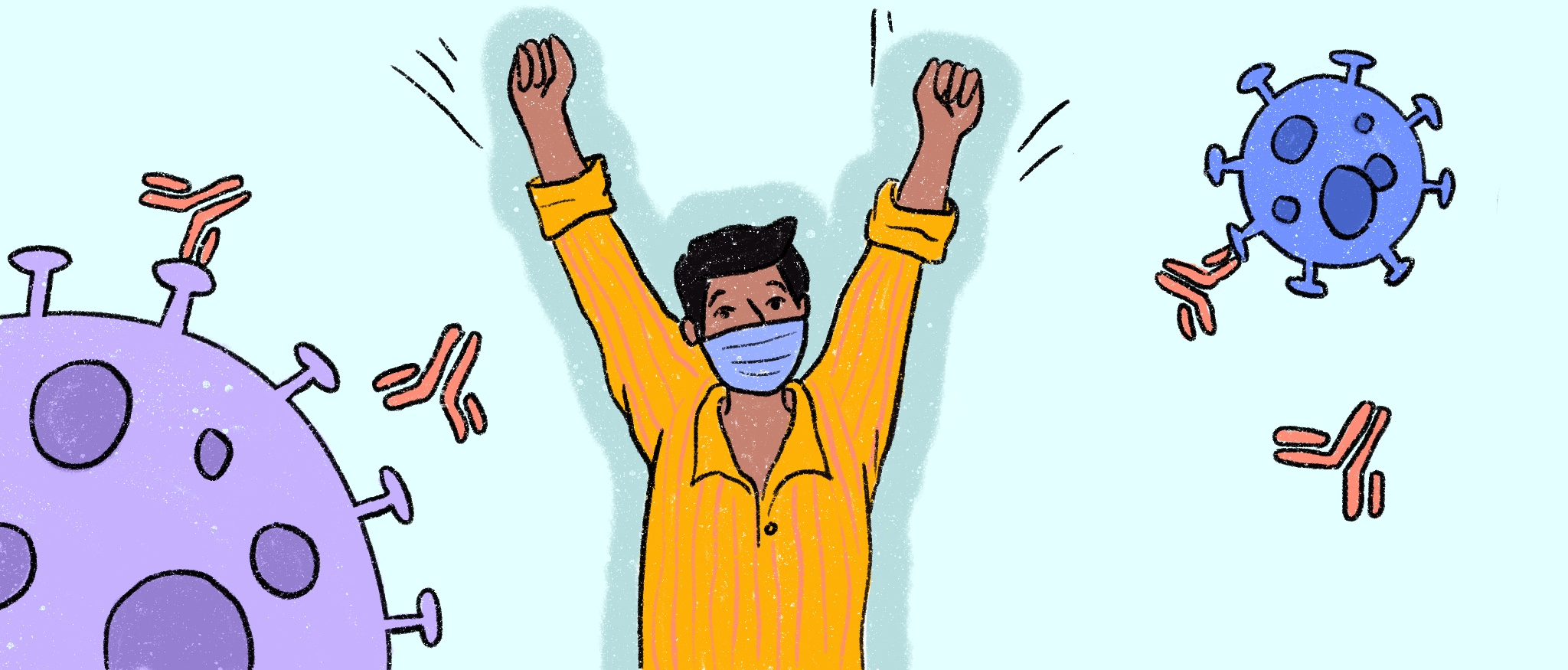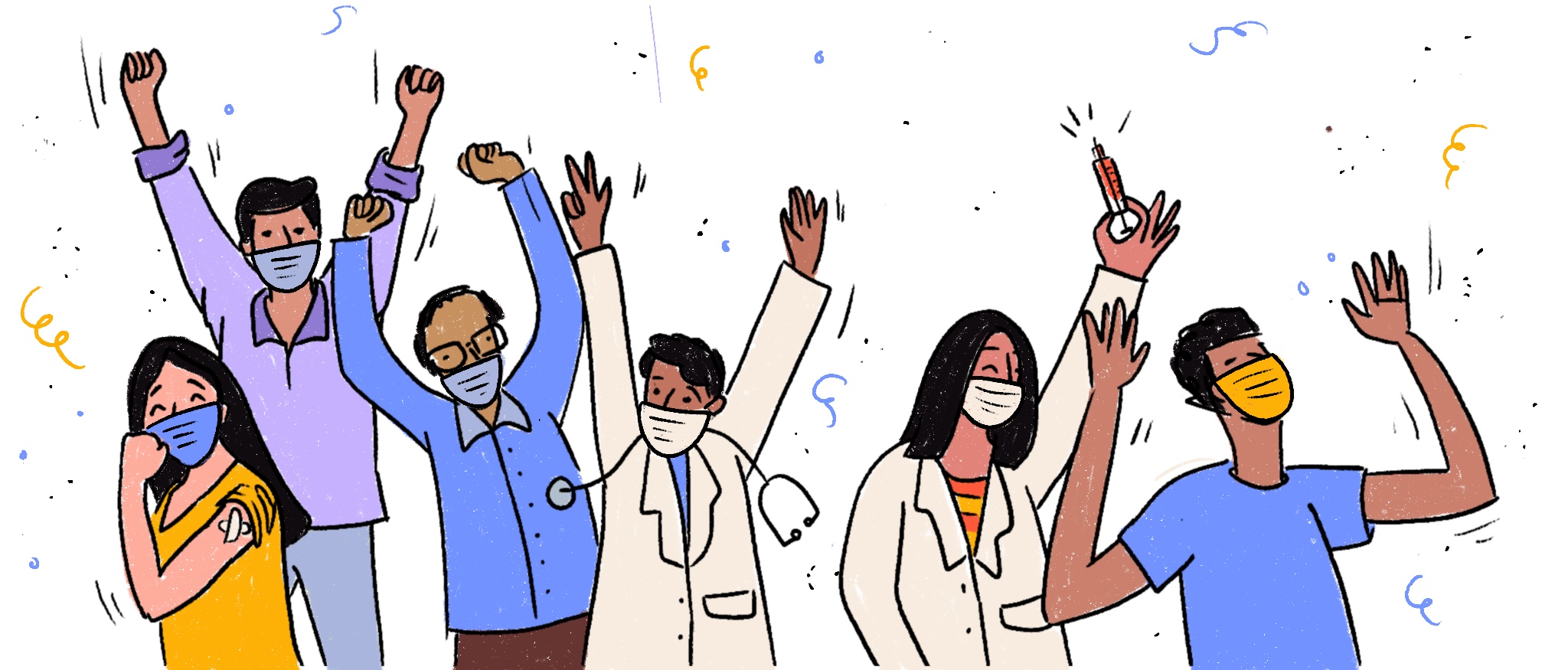This post has been reviewed by Dr. Animesh Banerjee, MBBS, MS, FRCSI, FRCS (ORL-HNS).
Antibody tests are becoming popular amidst the second wave of Covid. But not enough is known about antibodies and whether testing for them at various stages is even useful.
We will try to answer some common questions about Covid antibody tests and antibodies in general before you decide to take the test.
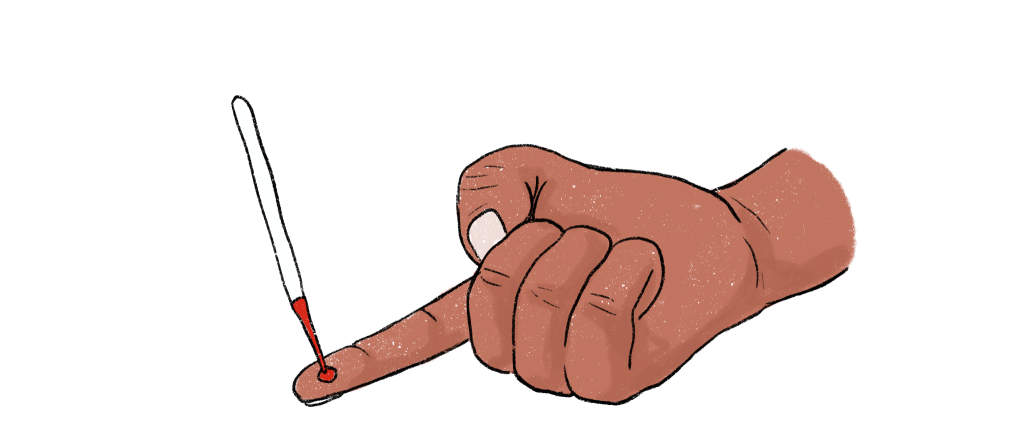
What is a Covid antibody test?
Antibody tests or serology tests look for antibodies in your blood to find out if you have had a Covid-19 infection in the recent past. These tests do not detect the virus, but can only tell if your immune system has been exposed to an infection.
How do antibodies protect from Covid-19?
Antibodies are Y-shaped proteins that recognise antigens, also called foreign bodies which your immune system has not been exposed to before, like the coronavirus. The immune cells in our body recognise and respond to these antigens.
B cells (a type of immune cell) produce antibodies that attach to the antigen. This act of binding to the antigen helps destroy it. But these antibodies cannot do all the work alone so they get the T cell (memory cell in the immune system) to recognize and destroy it.
It takes two to tango the Covid out of your system.
Since Covid-19 is a new virus, our bodies do not have ready antibodies to fight it. But if you’ve had an infection once and your body is exposed to Covid again, B cells & T cells who have great memory recognise the antigen quickly and get into action. It’s really a dream team.
When should I get a Covid antibody test?
According to the Center for Disease Control (CDC), you can get an antibody test in case your viral testing is delayed.
You can also get an antibody test if you have had symptoms for a long time and they won’t go away. These symptoms include fatigue, cough, trouble breathing, headache, and joint pain. It may be useful to get an antibody test at least two weeks after symptoms begin to show.
People who have recovered from a Covid infection and want to donate plasma can get an antibody test too.
Do I need a doctor’s referral for Covid antibody test?
No, you can order a Covid antibody test without a doctor’s referral.

Can I get a Covid antibody test in place of an RT-PCR test?
An antibody test can only reveal past infection. It cannot tell whether you currently have Covid. Moreover, antibody tests are useful for scientists in understanding the spread of the virus among a population. It should not be used to make a personal decision about immunity against Covid.
My antibody test came back positive, does it mean I am immune to Covid-19?
It means you have some immunity, but it does not mean that you are completely safe from re-infection.
The level of immunity you have–whether a certain number of antibodies is enough to protect you against Covid–and how long your immunity will last with the presence of these antibodies is still unclear.
Am I no longer contagious if my Covid antibody test came back positive?
Usually, when antibodies kick in, you are no longer contagious because antibodies kill viruses. But because Covid is so new, there is not enough research to confidently say that it’s true for this virus.
At this point, it is best to stay cautious and practice good Covid etiquette: wear a mask, wash your hands frequently and maintain social distancing.
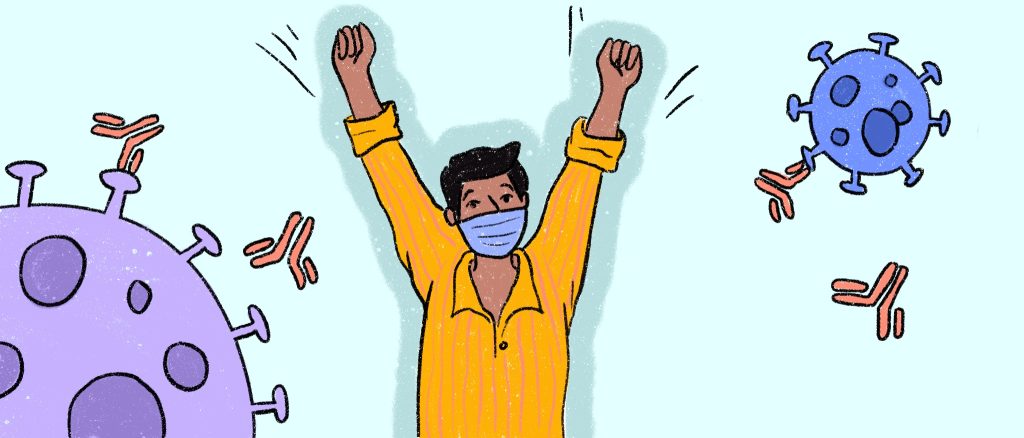
Should I get vaccinated even when I have developed antibodies from a natural infection?
Yes, early evidence suggests that past infection and viral load does help in building robust immunity. But it’s still unclear how long immunity from a natural infection lasts. So it is advisable to get your dose of Covid-19 vaccine. Vaccines have been optimised to give reliable and safer immunity than natural infection.
Are antibodies developed from natural infection stronger than those developed by vaccines?
Well, this one is tough. Natural immunity from coronavirus is strong. And there’s some new research to suggest that antibodies from a Covid infection may last for years, even decades (but it’s from a non peer-reviewed paper).
There are so many variations in the immune response among people who were infected that it is irresponsible to suggest that natural immunity is enough. For example, antibodies in people who had a mild infection may disappear within a few mconths, so you should get vaccinated even if you have some natural immunity.
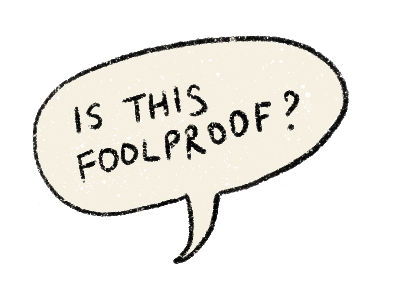
Are Covid antibody tests foolproof?
Antibodies kick in 1 to 3 weeks after infection so if you get an antibody test too early on during the infection, the test may reveal nothing useful. Besides Covid antibody tests are not 100% accurate.
How long after getting your shot of covid vaccine do antibodies develop?
Protective levels of antibodies start to develop two weeks after your second dose of Covid-19 vaccine.
Do I need an antibody test before the Covid vaccine?
No, you do not need an antibody test whether you have had covid with symptoms or if you think you had covid and you were asymptomatic.
Do I need an antibody test after the Covid vaccine?
No, you do not need an antibody test after the first or the second dose of the vaccine. According to the CDC, certain tests cannot detect antibodies produced by the vaccine. In that case, the result will be negative for people who have never had a previous infection.

Can I get Covid again if I have antibodies?
One research study conducted among health workers in the UK revealed that people who develop antibodies to fight Covid have immunity and may not get reinfected for 6 months: whether they were severely ill or had mild symptoms.
But again, the strength and duration of such immunity is unknown. There have been a few cases where people have got Covid within the first month of their first Covid infection.
Like in all cases, it is best to take your doctor’s advice if you need a Covid antibody test. And even if you have immunity from natural infection or you developed antibodies from the vaccine, it is advisable to wear a mask in public and around those who haven’t been vaccinated.
Design credits: Ankita Shinde

